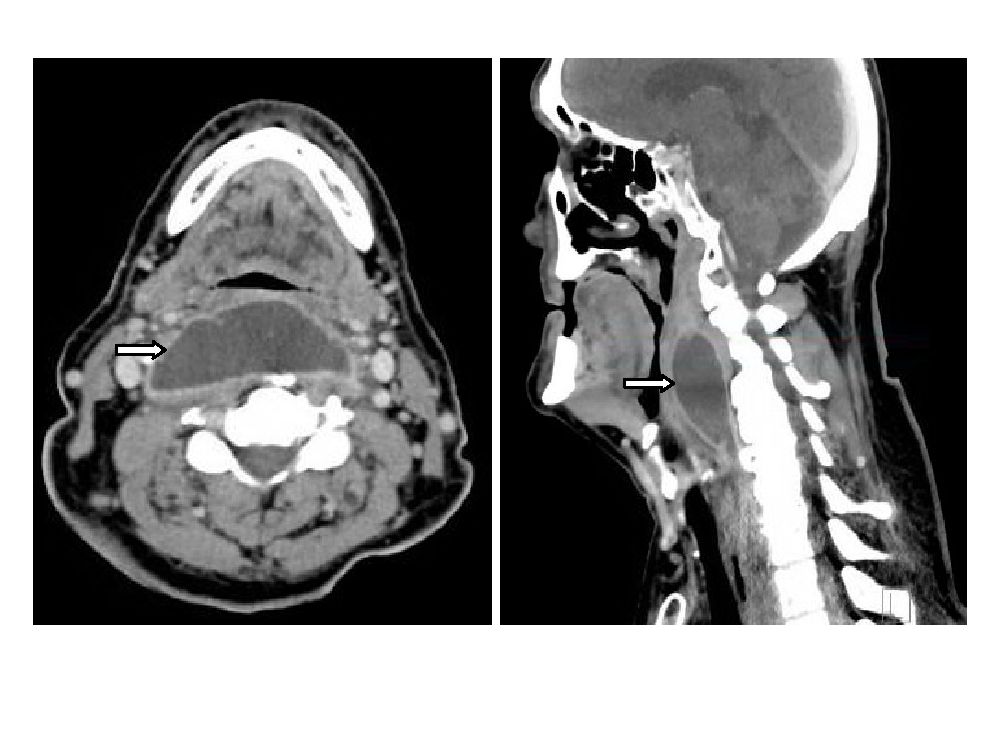Case Presentation: A 58-year-old male presented to the emergency department with shortness of breath, aggravated by supine position, cough with white sputum production, sore throat, dysphagia for solid food and odynophagia for last 2 weeks. Past medical history consisted of: coronary artery disease, hepatitis C, alcoholism, chronic obstructive pulmonary disease and chronic kidney disease. Physical examination was remarkable for mild neck fullness and irregularly irregular rhythm. Laboratory investigation showed white blood cell count of 20.85 x103/μL and hemoglobin of 11.2 g/dL. EKG showed atrial fibrillation with rapid ventricular response. Chest X-ray was normal.CT of the neck demonstrated retropharyngeal abscess measuring 7 X 3 cm anteroposteriorly causing moderate narrowing of airway at the level of tongue base, and 18 cm craniocaudally extending into the posterior mediastinum. Patient was admitted to intensive care unit. Treatment with ampicillin-sulbactam and diltiazem drip was initiated. Patient was intubated and incision and drainage of the abscess was performed by ENT surgeon. As preliminary wound culture showed gram negative bacilli, ampicillin-sulbactam was substituted by meropenem. Blood culture was negative. CT of neck and chest with contrast was repeated in 3 days which showed retropharyngeal abscess measuring 2.5 X 2.7 cm anteroposteriorly and 7.7 cm craniocaudally extending into the posterior mediastinum. Final wound culture showed pasteurella multocida and methicillin sensitive Staphylococcus aureus. Patient was discharged from hospital on i.v. ampicillin-sulbactam for 4 weeks. After finishing antibiotic treatment repeat CT of Chest demonstrated resolution of posterior mediastinal abscess.
Discussion: Pasteurella multocida (P.multocida) is a facultative gram-negative organism that is natural flora in many animal species and remains a common cause of zoonotic illnesses. It continues to pose a problem in developed and developing countries worldwide. Domestic animals mainly cats and dogs remain the main vector for people living in developed countries. P.multocida infection in humans is often classified in one of three forms: local skin and soft tissue infections (the most common form) at the site of contact with the animal; respiratory infections primarily in individuals with chronic pulmonary disease; and severe systemic infections which mainly can occur in immunocompromized individuals .So far there is no case report describing retropharyngeal abscess caused by P.multocida. In our case patient had a cat at home. The development of retropharyngeal abscess could be related to contact with cat’s secretions in combination with patient’s poor oral hygiene.
Conclusions: P.multocida is an important cause of zoonotic illness in the United States and is related to encounters with dogs and cats.We report an extremely rare case of retropharyngeal abscess cased by P.multocida.
